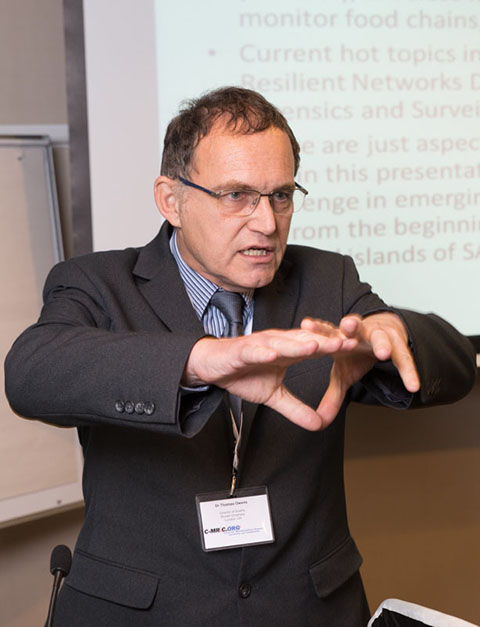
Call for Papers
IEEE is the Technical Co-Sponsor (TCS) of the International Conference on Cyber Situational Awareness, Data Analytics and Assessment (CyberSA 2016), an international refereed conference dedicated to the advancement of the principles, methods and applications of situational awareness on Cyber Systems, Business Information Systems (BIS), Computer Network Defence (CND), Critical National Infrastructures (CNI), Cyber Physical Systems (CPS) and Internet of Things (IoTs).
The aim of the CyberSA 2016 is to encourage participation and promotion of collaborative scientific, industrial and academic inter-workings among individual researchers, practitioners, members of existing associations, academia, standardisation bodies, and including government departments and agencies. The purpose is to build bridges between academia and industry, and to encourage interplay of different cultures
Submission Deadline
Deadline for all paper submissions, that is, both full papers and extended abstracts for Poster, WIP, PoC, Research Idea and PhD Seminar presentations is 26th February 2016.
All Industry track, Work in Progress track, Research Ideas track and PhD Seminar track will be published in the conference proceedings. Interested participants, please submit your proposal using the online submission system hosted by Easychair Conference Portal.
Full paper submission should be via Easychair Conference Portal
Topics of Interest
- Situation Awareness in Software Defined Networks
- Security Monitoring, Scale of Things and Limits to Monitoring
- Block Chain Technology in Security
- IoT Detection and Software Driven Applications Security
- Situation Awareness in Mobile Computing
- Standardisation of Cyber Situation Awareness
- Search, Triage, Examination and Forensics in Cloud Computing
- Cyber SA in Chaotic Computing
- Cyber SA in Large Scale IDS Deployments
- Cyber SA in Deep Learning
- Deep Analytics
- Machine Learning for Cyber Situational Awareness
- Assessment models and methodologies for Cyber SA
- Cyber Situation Awareness Evaluation Recommendation
- Cyber SA Maturity Models and Frameworks
- Cyber SA for Social Networks
- Social Network Interaction and Intelligence
- Web Analytics & Security Incident Response
- Organised and collaborative Maps and Networks
- Cyber Behavioural Analytics and Profiling
- Collaborative Situation Awareness for Decision Making
- Situation Assessment & Decision Making
- Defense Strategy for the Enhancement of Situation Awareness
- Situation Assessment, Resolution and Decision Loop
- Individual vs. Team SA
- Group and Team SA
- Trust, Privacy and Anonymity Issues
- Digital Forensic Information Analysis
- Enterprise Information Security Policies, Standards and Procedures
- Risks posed by Wireless Networks, including through the use of Mobile Computing, BYOD, Wearable in CND environment
- Fuzzy Logic
- Rough Set
- Artificial Neural Networks
- Artificial Intelligence
- Genetic Algorithm
- Evidence Theory (DST)
- Bayesian Networks & Set Theory
- Big Data Analytics
- Game Theory
- Graph Theory
- Cyber Attack Scenarios
- Situation-Aware and Context-Aware Network Applications
- CERTs and CSIRTs
- Security Event and Information Management
- Application Security, Audits and Penetration Testing
- Workload
- Perception
- Stress
- Knowledge
- Training and Expertise
- Risk Assessment and Decision Making
- Forecasting and Prediction
- Operator SA & Team SA
- Information Security
- Cyber Security
- Database Security
- Application Security
- Law Enforcement and Surveillance
- Border Protection and Controls
- Cyber Warfare and Counter Terrorism
- Military Doctrinal in Situation Awareness
- C4ISR (Command, Control, Communications, Computers, Intelligence, Surveillance and Reconnaissance)
- Computer Network Operations
- Computer Network Defense
- Mission Awareness, Command and Control
- Attack Graphs
- Advanced Security Incident Analysis
- Sensor Correlation and Cross-Correlation
- Implementing Situation Awareness Systems
- Information Security Metrics and Measurements
- Proactive Defense Strategies
- Instance-Based Learning
- Adaptive Neural Logic
- Human-Assisted Decision Control
- Human in the Loop
- Automated Self-Responder
- Tools for Metric Optimisation
- Visualisation and Digital Analytics
- Data Mining
- Filtration, Selection, and Risk-Based Prioritisation
- Metrics for Evaluation and Assessment
- Usefulness of Multisensor Data Fusion
- Information Data Fusion
- Sensor Fusion for Security Incident Analysis
- Security Incident Analysis
- Data Association & Correlation
- Security Information Visualisation
- Data Analytics
- Security Monitoring
- Situation Awareness in C4ISR
- Situation Awareness in Cyber Command and Control Centres
- Situation Awareness in Intrusion Defense
- Situation Awareness in Cyber Physical Systems (CPS)
- Situation Awareness for Internet of Things (IoTs), Enterprise Internet of Things (EIoTs)
- Open Source Applications
- Functional Requirements for Situation-aware services
- Non-Functional Requirements for Situation-aware Services and solutions
- Interface Design
- Interoperability
- Dynamism
- Complexity
- Performance
- Automation
- Realtime Processing
- Research and development in Situation Awareness
- Simulation and Testbeds in Cyber Situation Awareness
- Experimentation & Instrumentation
- Modelling
- Knowledge-base
- Theoretical Underpinnings in Situation Awareness
- Team and Group SA
- Cyber Situation Awareness Methods, Training and Education
Speakers

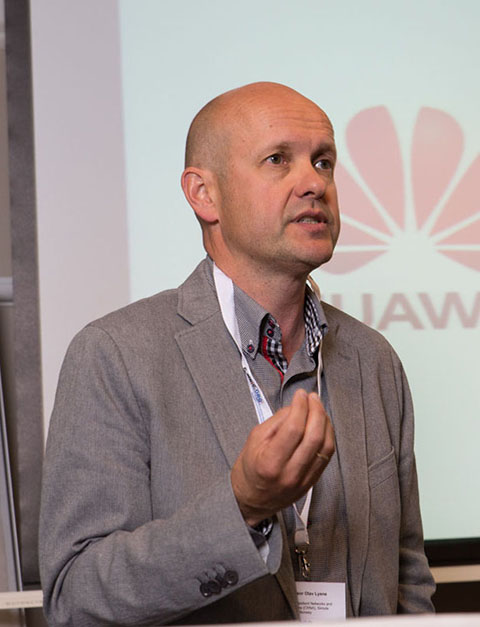
Professor Olav Lysne
Centre for Resilient Network and Applications (CRNA), Simula, Norway
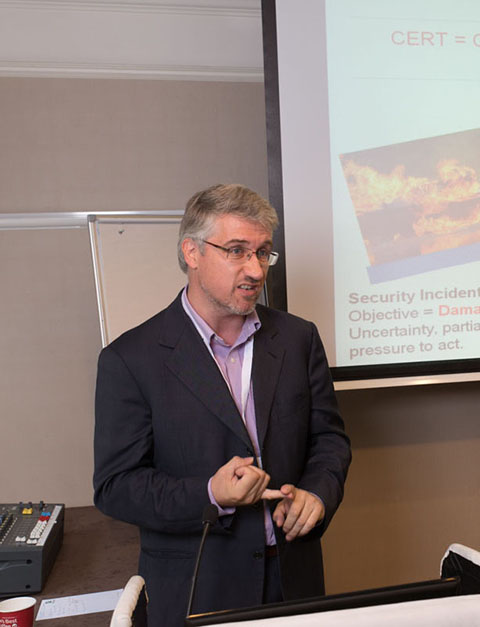
Dr. Andrew Lenaghan
The Oxford University CERT (OxCERT), Oxford, UK
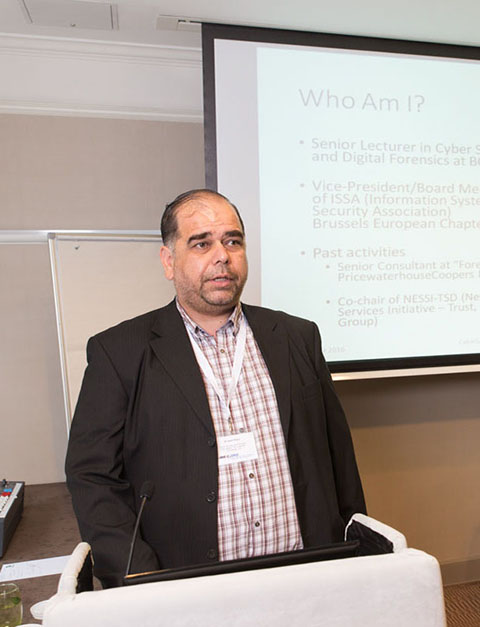
Dr. Syed Naqvi
Cyber Security and Forensics, Birmingham City University
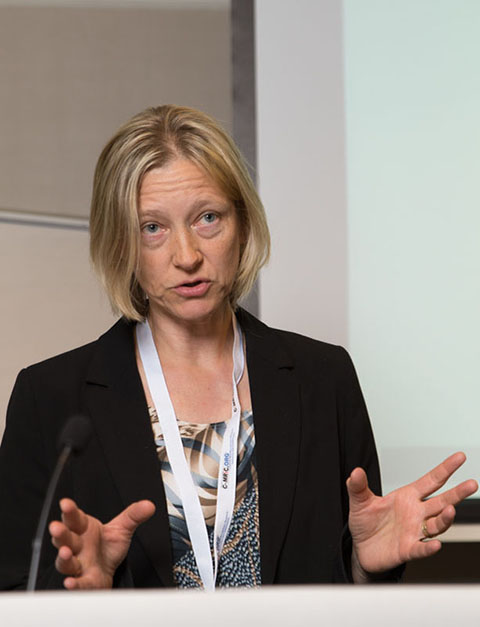
Dr. Janne Hagen
Norwegian Water Resources and Energy Directorate (NVE), Norway
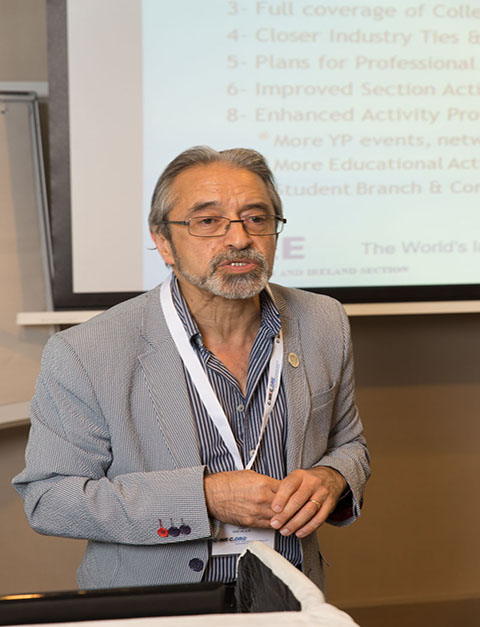
Professor Ali Hassami
Chair, IEEE United Kingdom & Republic of Ireland
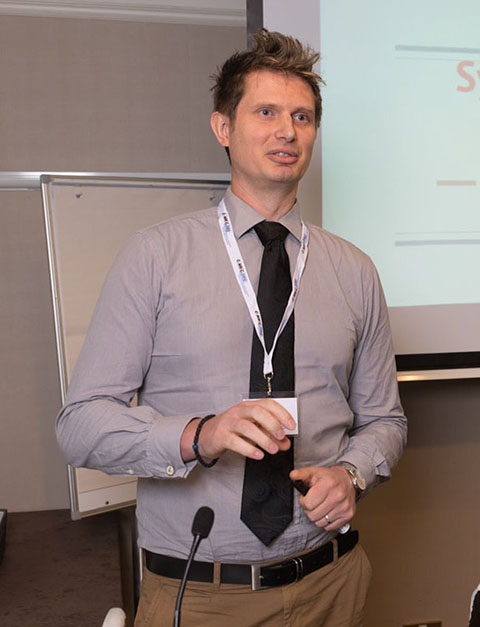
Dr. Nick Savage
School of Computing, University of Portsmouth, Portsmouth, UK
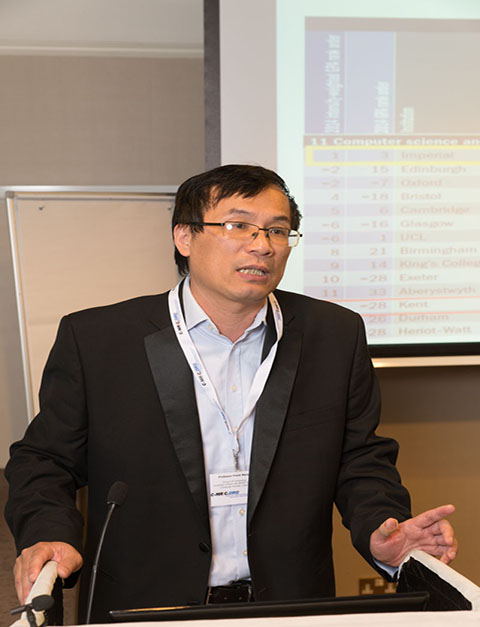
Professor Frank Wang
School of Computing, University of Kent, UK
Important Dates
- Industry (Proof of Concept / Pilot) Submission – February 26, 2016 March 11, 2016
Extended Abstract (Work in Progress) – February 26, 2016 March 11, 2016
PhD Seminar Submissions – February 26, 2016 March 11, 2016
Research Ideas – February 26, 2016 March 11, 2016
Poster/Demo Submissions – February 26, 2016 March 11, 2016
Special Track Submissions – February 26, 2016 March 11, 2016
Workshops and Tutorials Submission – February 26, 2016 March 11, 2016
Full Paper Submissions – February 26, 2016 March 11, 2016
Notification of Full Paper/Abstract / Special Track Acceptance/Rejection – March 25, 2016
Camera Ready Paper Due – April 8, 2016
Participants Registration – March 25 – May 25, 2016
Conference Date – 13 & 14 June 2016
Location
London
United Kingdom
Programme Committee
- Cyril Onwubiko – Centre for Multidisciplinary Research, Innovation and Collaboration, UK
- Thomas Owens – Brunel University, London, UK
- Janne Merete Hagen – Norwegian Defence Research Establishment, Norway
- Nick Savage – University of Portsmouth, UK
- Stacy J. Prowell – U.S. Department for Energy (DOE-OE) Cybersecurity for Energy, USA
- Eckhard Pfluegel – Faculty of Science, Engineering and Computing, Kingston University, UK
- Uri Blumenthal – MIT Lincoln Laboratory, MIT, USA
- Andrew Lenaghan – Oxford University, UK
- Gareth Niblett – BCS Information Security Specialist Group (ISSG), UK
- Daniel Zeng – University of Arizona, USA
- Sotiris Ioannidis – the Institute of Computer Science, Foundation for Research and Technology (FORTH), Greece
- Phil Legg – University of the West of England, UK
- Xavier Bellekens – University of Abertay, Scotland, UK
- Cyril Onwubiko – Centre for Multidisciplinary Research, Innovation and Collaboration, UK
- Keem Siah Yap – Universiti Tenaga Nasional, Malaysia
- Peter Komisarczuk – Royal Holloway, University of London, London, UK
- Mona Ghassemian – IEEE UK and Ireland, London, UK
- Pierre Parrend – ECAM Strasbourg-Europe, France
- Abdullahi Arabo – University of the West of England (UWE), Bristol, UK
- Veena Desai – Gogte Institute of Technology, Belgaum, India
- Azah Norman – University of Malaya, Kuala Lumpur, Malaysia
- Theo Dimitrakos – Security Futures Practice, BT Research & Technology, UK
- Gerardo I. Simari – Universidad Nacional del Sur in Bahia Blanca and CONICET, Argentina
- Uwe Glässer – School of Computing Science, Simon Fraser University, Canada
- Sen Soori – VSB-The Technical University of Ostrava, The Czech Republic
- Liam Meany – School of Electronic Engineering, Dublin City University, Ireland
- Stacy J. Prowell – U.S. Department for Energy (DOE-OE) Cybersecurity for Energy, USA
- Anthony Davies – Life Member, IEEE UK & Republic of Ireland, IEEE
- Thomas Owens – Brunel University, London, UK
- Jens Myrup Pedersen – University of Aalborg, Denmark
- Reza Tadayoni – University of Aalborg, Denmark
- Andrew Lenaghan – Oxford University, UK
- Subrata Acharya – Towson University, USA
- Marios Anagnostopoulos – University of the Aegean, Greeceb
- Yi Luo – Department of Systems and Industrial Engineering, University of Arizona, Tucson, USA
- Erik Blasch – Fusion Evaluation & Air Force Research Laboratory, USA
- Genshe Chen – Fusion, USA
- Wei Yu – Towson University, USA
- Uri Blumenthal – MIT Lincoln Laboratory, MIT, USA
- Ciza Thomas – College of Engineering, India
- Stefanos Gritzalis – University of the Aegean, Greece
- Bechara Al Bouna – Science University, Lebenanon
- Janne Merete Hagen – Norwegian Defence Research Establishment, Norway
- Varun Dutt – Indian Institute of Technology Mandi, India
- Cleotilde Gonzalez – Carnegie Mellon University, USA
- Khidir M. Ali – Jubail University College, Kingdom of Saudi Arabia
- Xinyu Yang – Xi’an Jiaotong University, China
- Jie Lin – Xi’an Jiaotong University, China
- Georgios Kambourakis – University of the Aegean, Greece
- Elisavet Konstantinou – University of the Aegean, Greece
- Jeffrey Voas – National Institute of Standards and Technology (NIST), Gaithersburg, USA
- Kirankumar S. Akate – Government Institute of Forensic Science, Aurangabad, India
- Manish Gupta – State University of New York, Buffalo, NY, USA
- Yuan Gu – Cloakware Advanced Research Center, Irdeto, China
- Kristina Soukupova – Aerospace & Defense Practice, I3CAS, UK
- Panagiotis Trimintzios – Cyber Crisis Cooperation & Exercises Team Operational Security, ENISA, Europe
- Phil Legg – University of the West of England, UK
- Nilay Mistry – Gujarat Forensic Sciences University, India
- Laribi Boualem – University of Djillali Bounaama, Algeria
- Ashish Choudhari – Southern Illinois University, Carbondale, USA
- Moi Hoon Yap – Manchester Metropolitan University, Manchester, UK
- Xuan Zhao – Cylance, California, USA
- Huiyu Zhou – Queen’s University Belfast, Belfast, UK
- Vida Ghanaei – KCS Group, London, UK
Conference Programme
- Philip Legg. “Enhancing Cyber Situation Awareness for Non-Expert Users using Visual Analytics“
- Samir Puuska, Matti J. Kortelainen, Viljami Venekoski and Jouko Vankka. “Instant Message Classification in Finnish Cyber Security -Themed Free-Form Discussion“
- Yoram Golandsky. “Cyber Crisis Management, Survival or Extinction?“
- Joe Burton. “Cyber Attacks and Maritime Situational Awareness: Evidence from Japan and Taiwan“
- Jan Ahrend, Marina Jirotka and Kevin Jones. “On the Collaborative Practices of Cyber Threat Intelligence Analysts to Develop and Utilize Tacit Threat and Defence Knowledge“
- Eliana Stavrou and Andreas Pitsillides. “Situation aware intrusion recovery policy in WSNs“
- Michael Davies and Menisha Patel. “Are we managing the risk of sharing Cyber Situational Awareness – A UK Public Sector Case Study“
- Radu-Stefan Pirscoveanu, Matija Stevanovic and Jens Myrup Pedersen. “Clustering Analysis of Malware Behavior using Self Organizing Map“
- Mahesh Bang and Himanshu Saraswat. “Building an effective and efficient continuous Web Application Security Program“
- Xavier Bellekens, Preetila Seeam, Quentin Franssen, Andrew Hamilton, Kamila Nieradzinska and Amar Seeam. “Pervasive eHealth Services A Security and Privacy Risk Awareness Survey“
- Mohamed Chahine Ghanem and Deepthi N. Ratnayake. “Enhancing WPA2-PSK four-way handshaking after re-authentication to deal with de-authentication followed by brute-force attack A novel re-authentication protocol“
- Filippo Sanfilippo. “A Multi-Sensor System for Enhancing Situational Awareness in Offshore Training“
- Palvi Aggarwal, Cleotilde Gonzalez and Varun Dutt. “Looking from the Hacker’s Perspective: Role of Deceptive Strategies in Cyber Security“
- Zahid Maqbool, V.S. Chandrasekhar Pammi and Varun Dutt. “Cybersecurity: Effect of Information Availability in Dynamic Security Games“
- Roman Graf, Florian Skopik and Kenny Whitebloom. “A Decision Support Model for Situational Awareness in National Cyber Operations Centers“
- Shruti Kohli. “Developing Cyber Security Asset Management framework for UK Rail“
- Ryan Heartfield and George Loukas. “Evaluating the reliability of Users as Human Sensors of Social Media Security Threats“
- Jennifer Cole, Chris Watkins and Dorothea Kleine. “Internet Discussion Forums: Maximizing Choice in Health-seeking Behaviour During Public Health Emergencies“
- Paul Baxter and Trevor Wood. “Generating Insight from Data“
- Gaofeng Zhang, Paolo Falcarin, Elena Gómez-Martínez, Christophe Tartary, Shareeful Islam, Bjorn De Sutter and Jerome D’annoville. “Attack Simulation based Software Protection Assessment Method for Protection Optimisation“
- Mohammed Alzaylaee, Suleiman Yerima and Sakir Sezer. “DynaLog: An Automated Dynamic Analysis Framework for characterizing Android Applications“
- Louai Maghrabi, Eckhard Pfluegel and Senna Fathima Noorji. “Designing Utility Functions for Game-Theoretic Cloud Security Assessment: A Case for Using the Common Vulnerability Scoring System“
- Kamile Nur Sevis and Ensar Seker. “Cyber Warfare: Terms, Issues, Laws and Controversies“
- Thomas Mundt and Peter Wickboldt. “Security in building automation systems – A first analysis“
- Fara Yahya, Robert Walters and Gary Wills. “Goal-Based Security Components for Cloud Storage Security Framework: A Preliminary Study“
- Dylan Smyth, Victor Cionca, Sean McSweeney and Donna O’Shea. “Exploiting Pitfalls in Software-Defined Networking Implementation“
- Boojoong Kang, Suleiman Yerima, Kieran Mclaughlin and Sakir Sezer. “N-opcode Analysis for Android Malware Classification and Categorization“
- Muhammad Aminu Ahmad, Steve Woodhead and Diane Gan. “A Countermeasure Mechanism for Fast Scanning Malware“
- Andrea Cullen and Lorna Armitage. “The Social Engineering Attack Spiral (SEAS)“
- Catrin Burrows and Pooneh Bagheri Zadeh. “A Mobile Forensic Investigation into Steganography“
- Egon Kidmose, Matija Stevanovic and Jens Myrup Pedersen. “Correlating intrusion detection alerts on bot malware infections using neural network“
- Zbigniew Hulicki. “The IM System with a Cryptographic Feature“
- Reza Montasari, Pekka Peltola and Victoria Carpenter. “Gauging the Effectiveness of Computer Misuse Act in Dealing with Cybercrimes“
- Tomáš Sochor, Matej Zuzčák and Petr Bujok. “Statistical Analysis of Attacking Autonomous Systems“
- Marcelo Fontenele and Lily Sun. “Knowledge management of cyber security expertise: an ontological approach to talent discovery“
- Cyril Onwubiko. “Exploring Web Analytics to enhance Cyber Situational Awareness for the Protection of Online Web Services“
- Abdulrahman Alruban, Nathan Clarke, Fudong Li and Steven Furnell. “Proactive Biometric-Enabled Forensic Imprinting“
- Mary Geddes and Pooneh Bagheri Zadeh. “Forensic Analysis of Private Browsing” (Extended Abstract / WIP)
- Aisha Abubakar, Pooneh Bagheri Zadeh, Richard Howley and Helge Janicke. “Root Cuase Analysis (RCA) as a Preliminary Tool into the Investigation of Identity Theft” (WIP)
- Taolue Chen, Tingting Han, Florian Kammueller, Ibrahim Nemli and Christian Probst. “Model Based Analysis of Insider Threats” (Extended Abstract)
